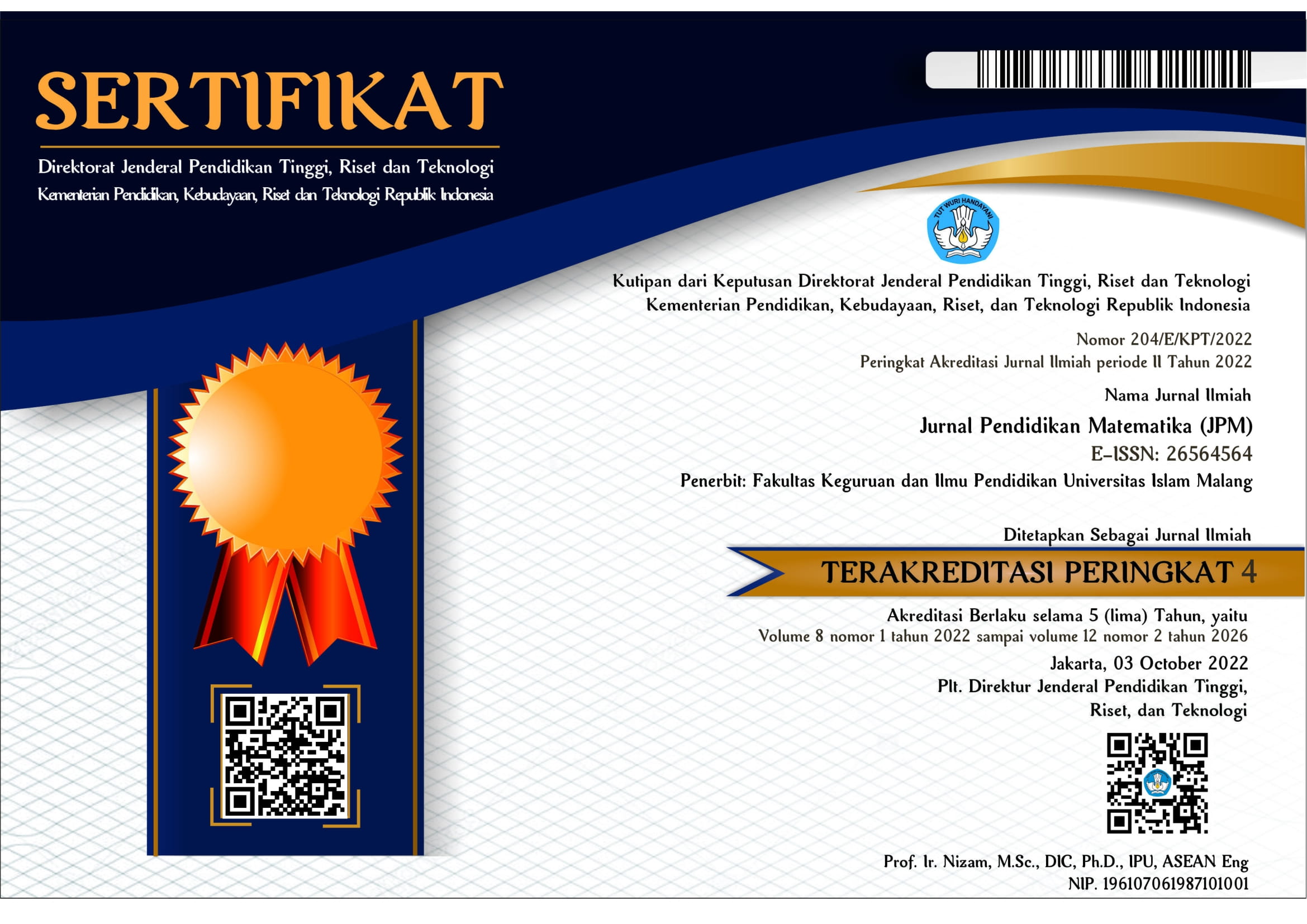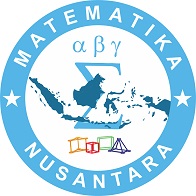IMPLEMENTASI STRATEGI POSE UNTUK MEMBERDAYAKAN CRITICAL THINKING MAHASISWA STKIP PGRI BLITAR
DOI:
https://doi.org/10.33474/jpm.v1i2.725Keywords:
strategi POSE, memberdayakan, critical thinkingAbstract
Background of the problem is that students are unable to predict and organize structures in Aljabar Structure I subject which is used as a tool to show a statement. The purpose of this research is to describe the implementation of POSE strategy(Predict, Organize, Summarize and Evaluate) which can empower critical thinking to students of mathematic education program of STKIP PGRI Blitar in Aljabar Structure I subject. The research uses qualitative approach with research design of Eliot model class action. The result based on the final test in the classical cycle 89,5% of the 19 students who take the test are in the category of critical potency good or excellent. The average percentage of final observation for lecturer and students activities in every meeting is catagorized good and excellent. The result of critical thinking activity sheet (LACT) in every meeting is in category good critical potency or critical potency. The result conclude that the implementation of POSE strategy which can empower critical thinking to students of mathematic education programme in subject of Structure AljabarReferences
Degeng, Nyoman S. 2013. Ilmu Pembelajaran (Klasifikasi Variabel untuk Pengembangan Teori dan Penelitian). Bandung: Kalam Hidup.
Desmita. 2012. Psikologi Perkembangan Peserta Didik. Bandung: Penerbit: PT Remaja Rosdakarya
Eggen, Paul; dan Kauchak, Don. 2012. Strategi dan Model Pembelajaran (Mengajarkan Konten dan Kemampuan Berpikir). Edisi Keenam. Jakarta: PT Indeks
Fisher, Alec. 2007. Berpikir Kritis Sebuah Pengantar. Jakarta: Penerbit Erlangga
Hitipeuw, Imanuel. 2009. Belajar dan Pembelajaran. Malang: Fakultas Ilmu Pendidikan Universitas Negeri Malang
Iswara, Prana Dwija. 2010. Ringkasan Disertasi: Penggunaan Strategi Tebak, Susun, Baca, Ringkas, Evaluasi (TSBRE) dan Multimedia bagi Peningkatan Kemampuan Membaca Pemahaman Mahasiswa Pendidikan Guru Sekolah Dasar UPI Kampus Sumedang. Online. http://file.upi.edu/Direktori/KD-SUMEDANG/197212262005011002-PRANA_DWIJA_ISWARA/penelitian/pdf. Diakses 25 Nopember 2014.
Komalasari, Kokom. 2010. Pembelajaran Kontekstual: Konsep dan Aplikasi. Bandung: PT. Refika Aditama
Krulik, Stephen dan Rudnick, J. Milou, E. 2003. Teaching Mathematics in Middle School: A Practical Guide. Boston: Pearson Education Inc
Maha, Eka Rejeki dan Sibarani, Berlin. 2012. The Effect of Applying POSSE (Predict-Organize-Search-Strategi-Evaluate) on the Students’ Reading Comprehension. (Online). http://jurnal.unimed.ac.id/2012/index.php/ellu/article/download/725/537. Diakses 9 Desember 2013.
Mercer, Cecil D dan Mercer, Ann R. 2005. Teaching Students with Learning Problems, seventh edition. New Jersey: Pearson Prentice Hall
Munthe, Bermawi. 2009. Desain Pembelajaran. Yogyakarta: Pustaka Insan Mandiri
Nurlaelah, Elah. tt. Lembar Kerja Mahasiswa sebagai Media Pembelajaran Mata Kuliah Aljabar I dengan Program ISETL. (Online). http://file.upi.edu/ MK-Elah_5/pdf. Diakses 21 Juni 2014
Sousa, David A. 2012. Bagaimana Otak Belajar. Edisi keempat. Jakarta: PT Indeks
Tim. 2007. Pembelajaran Inovatif dan Partisipatif. Jakarta: Dikti
Tzur, Ron dan Lambert, Matthew Allen. 2011. Intermediate Parcipatory Stages as Zone of Proximal Development Correlate in Constucting Counting-On: A Plausible Conceptual Source for Children’s Transitory “Rgress” to Counting-All. Journal for Research in Mathematics Education, 2011, Vol 42, No5.
Untari, Sri dan Kamdi, Waras. 2007. Model-model Pembelajaran Inovatif. Malang: UM Press





_-_Copy.jpg)
.jpg)
.jpg)










